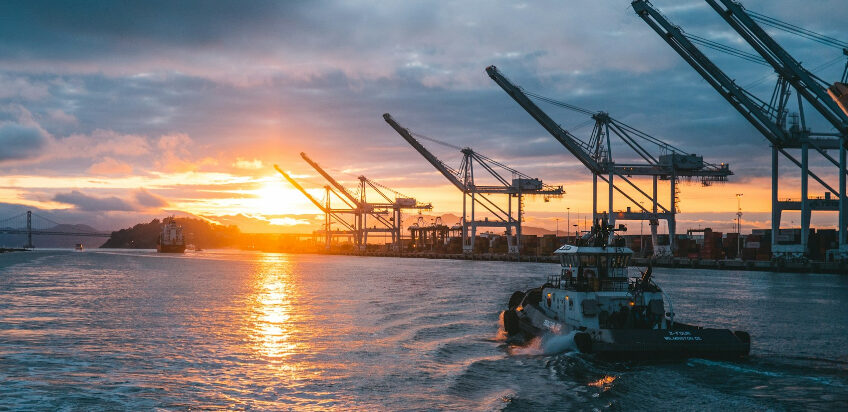New Jersey’s strategic location along the eastern seaboard of the United States makes its ports pivotal to both national and international shipping industries. The state’s maritime activities are governed by a complex array of international, federal, and state laws designed to regulate traffic in its waters, protect the marine environment, and ensure the safety and security of maritime operations. This detailed post explores the key maritime laws affecting New Jersey’s ports and shipping industries, the challenges faced by stakeholders, and the implications of these regulations.
Overview of New Jersey’s Maritime Sector
New Jersey hosts several major ports, including the Port of Newark, which is one of the busiest on the East Coast. These ports serve as critical hubs for the import and export of goods ranging from petroleum products and chemicals to consumer goods and foodstuffs. As such, maritime operations in New Jersey are subject to rigorous regulatory scrutiny.
Key International and Federal Maritime Laws
Maritime operations in New Jersey are primarily governed by a mixture of international conventions and federal laws, which address everything from vessel safety to pollution control:
- International Maritime Organization (IMO) Regulations: The IMO sets global standards for the safety, security, and environmental performance of international shipping. Its conventions, which the U.S. has ratified, affect all vessels entering or leaving New Jersey ports.
- The Jones Act (Merchant Marine Act of 1920): This fundamental piece of U.S. maritime legislation regulates maritime commerce in U.S. waters and between U.S. ports. It requires goods transported by water between U.S. ports to be carried on U.S.-flagged ships, constructed in the U.S., owned by U.S. citizens, and crewed by U.S. citizens or permanent residents.
- The Ports and Waterways Safety Act: This act gives the U.S. Coast Guard authority to control vessel traffic in U.S. waters to ensure safety and protect the marine environment. It includes provisions for the management of vessel traffic services, which are crucial for busy ports like those in New Jersey.
- Marine Pollution (MARPOL) Convention: As a party to the MARPOL Convention, the U.S. enforces strict regulations on marine pollution. Vessels in New Jersey’s waters must comply with MARPOL standards regarding oil discharge, garbage management, and air emissions.
State-Specific Maritime Regulations
In addition to adhering to federal and international laws, maritime operators in New Jersey must comply with state-specific regulations that often exceed federal requirements:
- New Jersey Spill Compensation and Control Act: This act provides the framework for preventing and cleaning up oil spills and hazardous substance releases in the state’s waters. It requires immediate reporting of spills and rapid response measures.
- New Jersey Clean Vessel Act: Aimed at reducing pollution from vessel sewage discharges, this law provides funds to develop and maintain marine sanitation facilities to service recreational and small commercial vessels.
Compliance Challenges
Navigating the compliance landscape presents significant challenges for maritime operators in New Jersey:
- Regulatory Complexity: The overlap of international, federal, and state regulations can create confusion and increase the administrative burden on ship operators and port authorities.
- Environmental Compliance Costs: Adhering to stringent pollution control regulations, particularly under MARPOL and state-specific environmental laws, can be costly. Implementing technologies to reduce emissions and manage waste requires significant investment.
- Security Mandates: Compliance with the International Ship and Port Facility Security (ISPS) Code and U.S. maritime security regulations involves continuous vigilance and substantial security investments.
Implications for the Maritime Industry
The comprehensive regulatory framework has broad implications for New Jersey’s maritime industry:
- Operational Delays and Increased Costs: Stricter regulations can lead to increased processing times at ports and higher operational costs, which may be passed on to consumers.
- Competitive Disadvantages: The requirement for U.S.-flagged vessels under the Jones Act may limit competition and increase the cost of domestic shipping.
- Enhanced Environmental and Safety Standards: While compliance is challenging, these regulations have undeniably improved safety and environmental standards in New Jersey’s maritime industry.
Future Outlook
As global trade evolves and environmental concerns become more pressing, maritime laws are likely to become even stricter. Stakeholders in New Jersey’s ports and shipping industries must stay informed of legislative changes and invest in compliance strategies to remain competitive and sustainable.
Conclusion
The legal landscape for maritime operations in New Jersey is shaped by a unique blend of international, federal, and state laws. For maritime businesses operating in this region, understanding and navigating these laws is not just about legal compliance but also about securing a competitive edge in a fast-paced, highly regulated industry. As challenges in environmental impact and safety continue to mount, the industry must adapt, ensuring that it not only complies with current regulations but is also prepared for future changes that might reshape the maritime legal environment.
